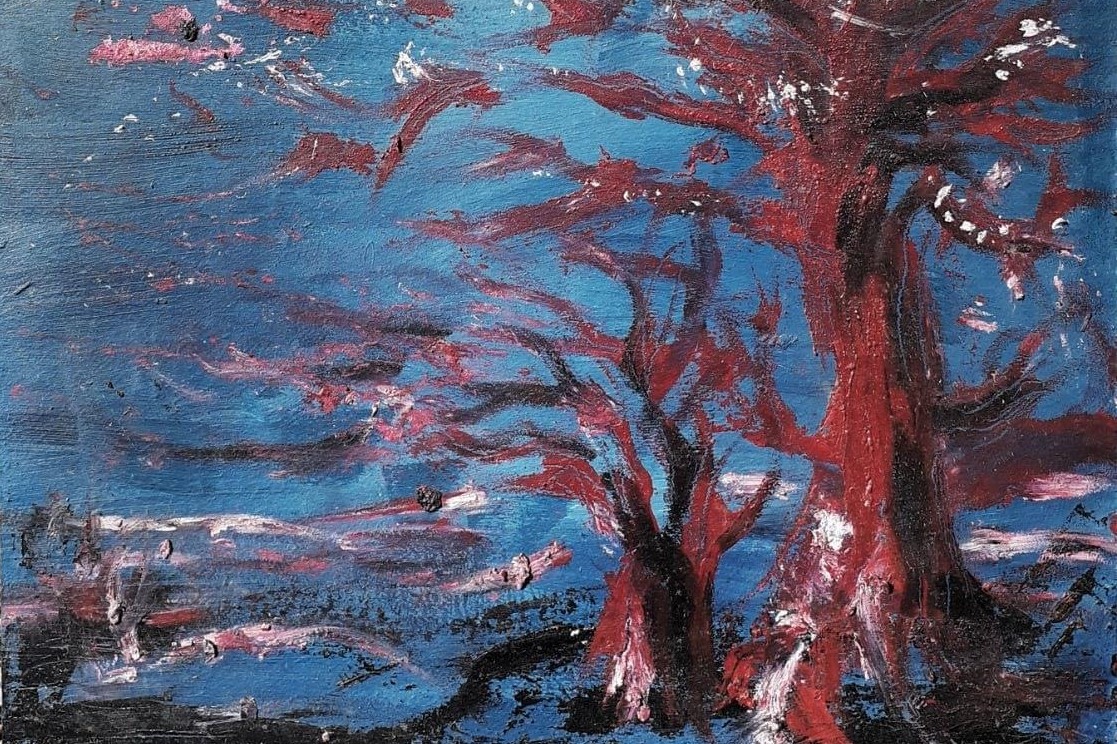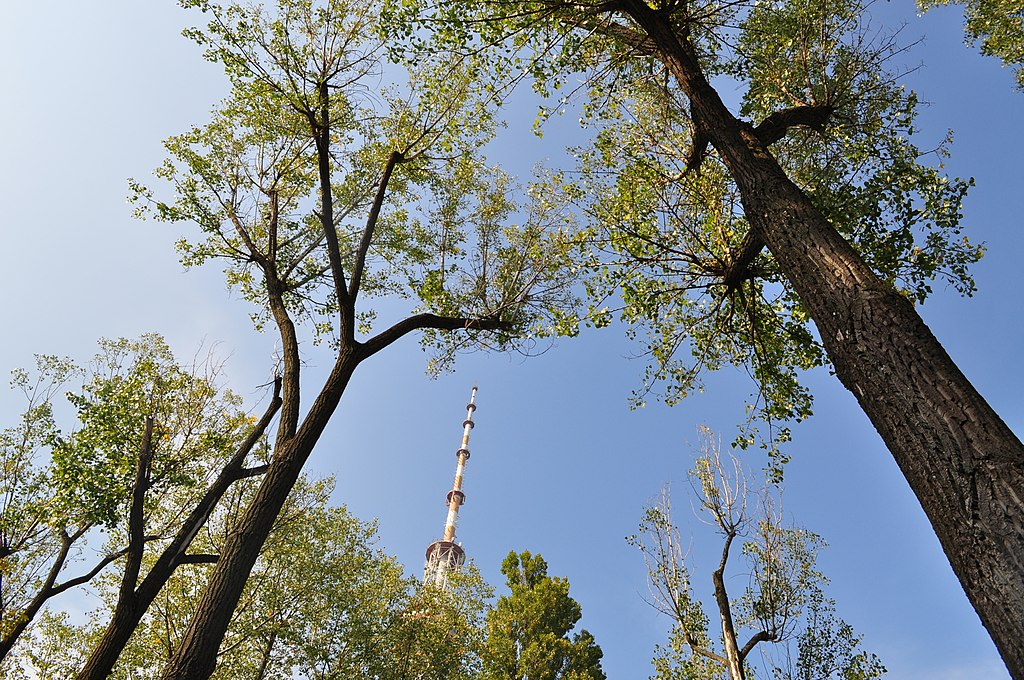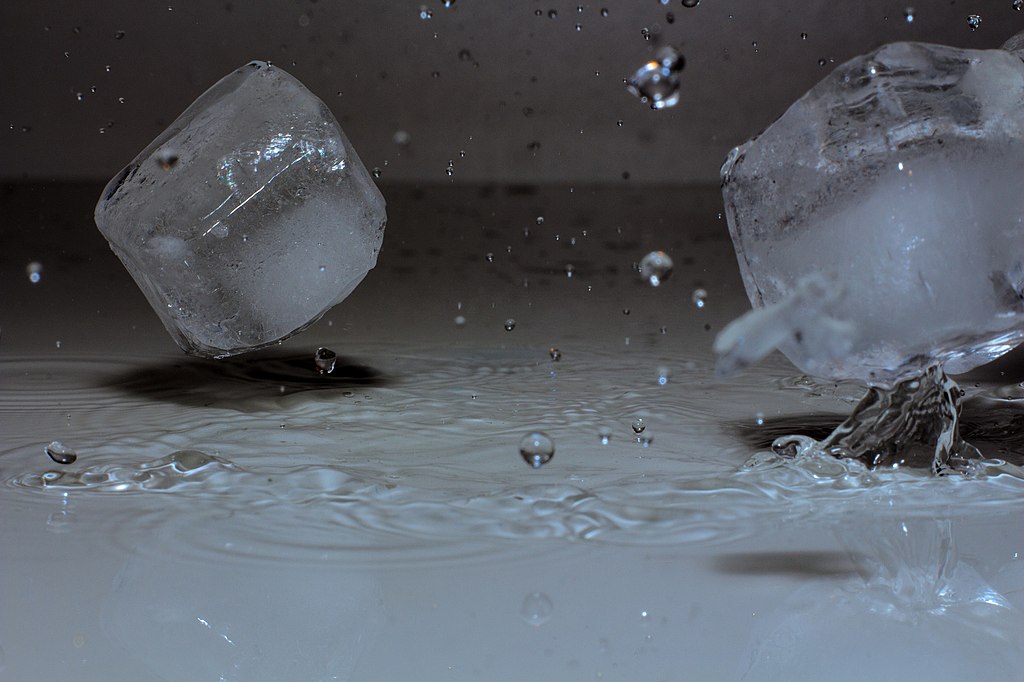
I don’t know why I’m surprised by any of this. And yet, I’ve felt a wide range of emotions since the latest invasion of Ukraine on the 24th of February. Maybe you saw the story on CNN, or read about it somewhere. Do you remember? I’m thinking about the one featuring three American veterans who’d traveled to Ukraine to offer their skills as warfighters to Ukrainian civilians. Adrian Bonenberger. Benjamin Busch. Matt Gallagher. All three are authors. Their books line the shelves in my own home. Maybe they’re in yours, too. I don’t know. But I know I wanted to be there with them in Lviv.
And I was worried about them. They’d put their lives on the line to do something that I, too, believe in. They could be killed or injured doing it. I’d heard of a similar group of military instructors being killed by someone who infiltrated the facility they taught in. I could imagine the dead in the aftermath, shots ringing in the air. I recorded this song (with the great help of musician and engineer Benjamin Kramer, along with vocals by Terri Kent)—as I thought of Adrian and Benjamin and Matt in Ukraine, what I might say to them, or to myself in that situation, or to the determined civilians they were training to fight.

What they don’t tell you about war
is how much a bank ledger
might shape a decision tree.
The price of fuel. Sunflower oil. Durable
goods when they’re floating on an ocean
with no delivery in sight. That
bullets can skip along the surface of a wall
like stones over water.
That it’s a bad idea to tape the sheet-glass
windows of your home, but smart
to roll down the windows of a car
when fleeing a firefight. That
you should open your mouth
to avoid rupturing your eardrums
when a shockwave rolls by. That
civilians are the bravest of all.
See how they face the invaders, saying
Take these seeds and put them in your pockets,
so at least sunflowers will grow
when you all lie down here.
What they don’t tell you about war
is a that soldier’s oath is not only
to be the one who puts out the fire, but
to be the one who starts the fire
to begin with, to be the one
who carves a hollow center
deep into the word suffering. War
is born of the obscene,
a disfiguration of words like love,
or humanity. This much we know.
Vanity, embarrassment, fear, pride,
shame. The human world we live in.
These things we do. These ghosts
we live with. How they call out to us
sometimes, asking for water. Such
a simple thing. A glass of water.
Once again, I live in a country at war. A country wealthy enough to sponsor a proxy war and pay little attention to it. That it might boil over into a major war between world powers seems remote today. Today the windows of my house are glazed with rain. The trees weighed down by the heat of summer. The grass so green it verges on lurid.

Today, the silver-flecked bodies of sardines
slathered in mustard on a raft of bread.
Ice melting into the translucence of water.
The yellow rain trees have leafed-out
in summer heat, while the river of heaven
unspools its banded rings of mist and fog
on the dreaming side of the world.
A Russian helicopter touches down
in a furrowed wheatfield gone to dust.
Voices call out in the dark there, though
they are lost in the broken air, rotorblades
whirring, with engines humming a secret
the dead might affirm from their stations
in the freshly-dug soil. What are we to do
with such knowledge? What do we say
to one another? Does the word love
extend to these?
My heart is the size of a fist.
My friend tells me that I must learn
to open it, if only a little.
And yet, the sardines lie flat on the bread, side
by side, like soft bullets wrapped in silver.
If I am capable of eating these, on a blue
and sunny day in human history,
what else am I capable of?
And with each passing day, I am slowing disappearing. Someone I love and care for is living within the complex onset of dementia. I am one small part of that vast history of experience within her, one small part of the mind’s undoing. That vanishing. The word now slips through her fingers with each passing hour, and even though I can see what took place in those hours, like little ghosts still hovering in the air—for her, the hours have turned invisible right before her eyes.
And she’s afraid. How could she not be afraid? The world makes less and less sense as the clock ticks forward. Saturday Sunday Monday Tuesday Wednesday Thursday and Friday—all slide like sunlight into shadow as the days of the week slide off the calendar she’s placed on the dining room table. The numbers beside each day slide off with them to pile into a jumble of nonsense at her feet. The future blurs in front of her as the names of people and things do the same. Nouns worn down into basic pronouns. The reduction of it all so fluid and inexorable.
This is what I’m thinking about as I think about the war in Ukraine.
I’m thinking of caregivers in a warzone. The dementia patients living at home. The families trying to hold their hands and comfort them as history is undone within them—and as the cities they live in are undone around them. It’s excruciating and impossible, and yet it is happening as I type this. There are cancer patients needing surgery and medicines and care. Diabetics in need of insulin. Stroke survivors who are just relearning how to walk, or how to form words they might offer the world through the broken instrument of the body.
The vulnerable. And those who care for them. They are mostly invisible in the literature of war, in the great films about conflict, in the poems of valor handed down through the centuries.
Who will care for these? And who will continue to fight for their right to house the word beauty within their souls?
Image 1: Piano Extremist, CC BY-SA 4.0, via Wikimedia Commons
Image 2: Sharon Hahn Darlin, CC BY 2.0, via Wikimedia Commons
Image 3: Jan Bambach, CC BY-SA 3.0, via Wikimedia Commons




